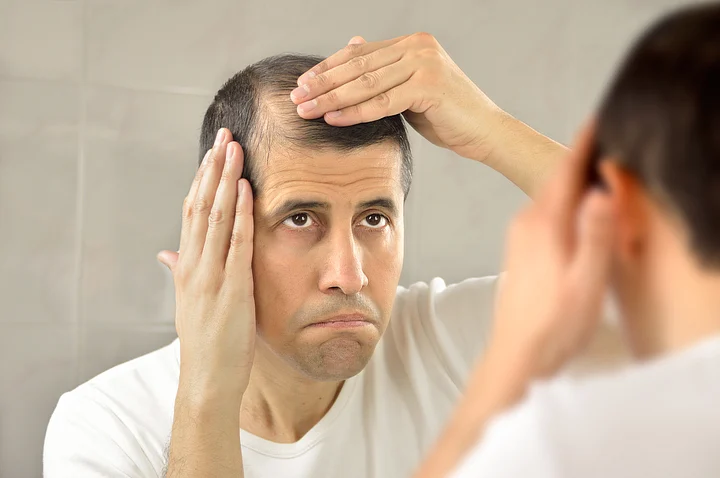Who doesn't love the voluminous, shiny, and black hair. We all love to get compliments on healthy skin and hair but how often are we able to find a person with no hair concerns and with healthy looking hair. Very rare, right?
Hair thinning, hair loss, baldness and bald spots have become common hair problems and people go to salons and try different home remedies to get rid of the embarrassing problem. But the main help would be to know the root cause of hair thinning, hair loss, and baldness. If we know the root cause, we can treat that to get rid of the symptoms, hair loss being one of them.
Below are few of the most common hair loss or baldness causes that often go unnoticed and people keep struggling to find a solution for their hair regrowth.
1. Hormone Imbalance
According to research, excess androgens, a male sex hormone and hormonal imbalances can cause hair loss such as androgenetic alopecia. Androgens play a role in female and male pattern baldness. Androgens can cause weak hair follicles in females leading to excess shedding. Androgen sensitivities may be experienced during estrogen-related changes like birth control medications or menopause.
Androgens affects the male pattern baldness causing an increase in an androgen called dihydrotestosterone (DHT) that not only binds to hair follicles and stops hair growth, but it may also decrease a hair’s life span overall. This is also called androgenetic alopecia.
2. Thyroid Problems
Thyroid is also a health condition that can cause hormone imbalance and result in hair loss. The thyroid glands can be overactive causing hyperthyroidism or can be underactive causing hypothyroidism.
According to Cleveland Clinic, any of these can result in hair loss because each condition causes a hormonal imbalance. Autoimmune diseases of the thyroid gland, such as Hashimoto’s thyroiditis and Graves’ disease may contribute to hair loss.
Thyroid hormones regulate every function in the body including hair growth thus their imbalance affects hair growth but the right treatment to control either of these thyroid conditions will stop hair loss, and allow your hair to starting grow back.
3. Pregnancy
Pregnancy and child birth can also cause hormonal imbalances resulting in hair loss. According to research, postpartum hair loss is common and affects 40 to 50 percent of women after childbirth. It happens because estrogen levels skyrocket during pregnancy, temporarily altering hair growth cycles.
Estrogen levels return to normal after pregnancy and may cause more hair loss than normal that is why postpartum moms notice thinning hair or even patches of baldness. According to the Cleveland Clinic, postpartum hair loss may happen one to six months after childbirth and may last for 18 months.
4. Certain Medications
According to the American Hair Loss Association, many people can experience hair loss as a side effect of certain medications that are often prescribed for common health problems and this is known as “drug-induced hair loss.”
These medications include, blood-thinning medications, oral contraceptives, drugs for depression, anti-inflammatories, and beta and calcium channel blockers that can cause hair thinning or baldness. Some chemotherapy drugs can also cause total hair loss though hair usually grows back after chemo.
5. Auto-Immune Diseases
Many types of autoimmune diseases can also cause hair loss. Hashimoto’s thyroiditis and lupus are two autoimmune diseases that can result in hair loss. This type of hair loss may not be reversible and it may cause permanent hair loss. You will have to use medications and hair restoration surgeries for hair regrowth.
6. Stress
If you take too much stress, it can also cause hair fall. A developing illness or surgery can also put stress on the body and mind in which up to 70 percent of hair follicles go into a resting phase.
According to AAD, hair loss is typical after a fever or during recovery from illness in general. Emotional trauma can also cause acute telogen, resting phase, Other life-altering events like a divorce or a breakup, bankruptcy or other financial problems can also cause emotional stress that disrupts the normal cycle of hair growth.
(At The Quint, we question everything. Play an active role in shaping our journalism by becoming a member today.)
